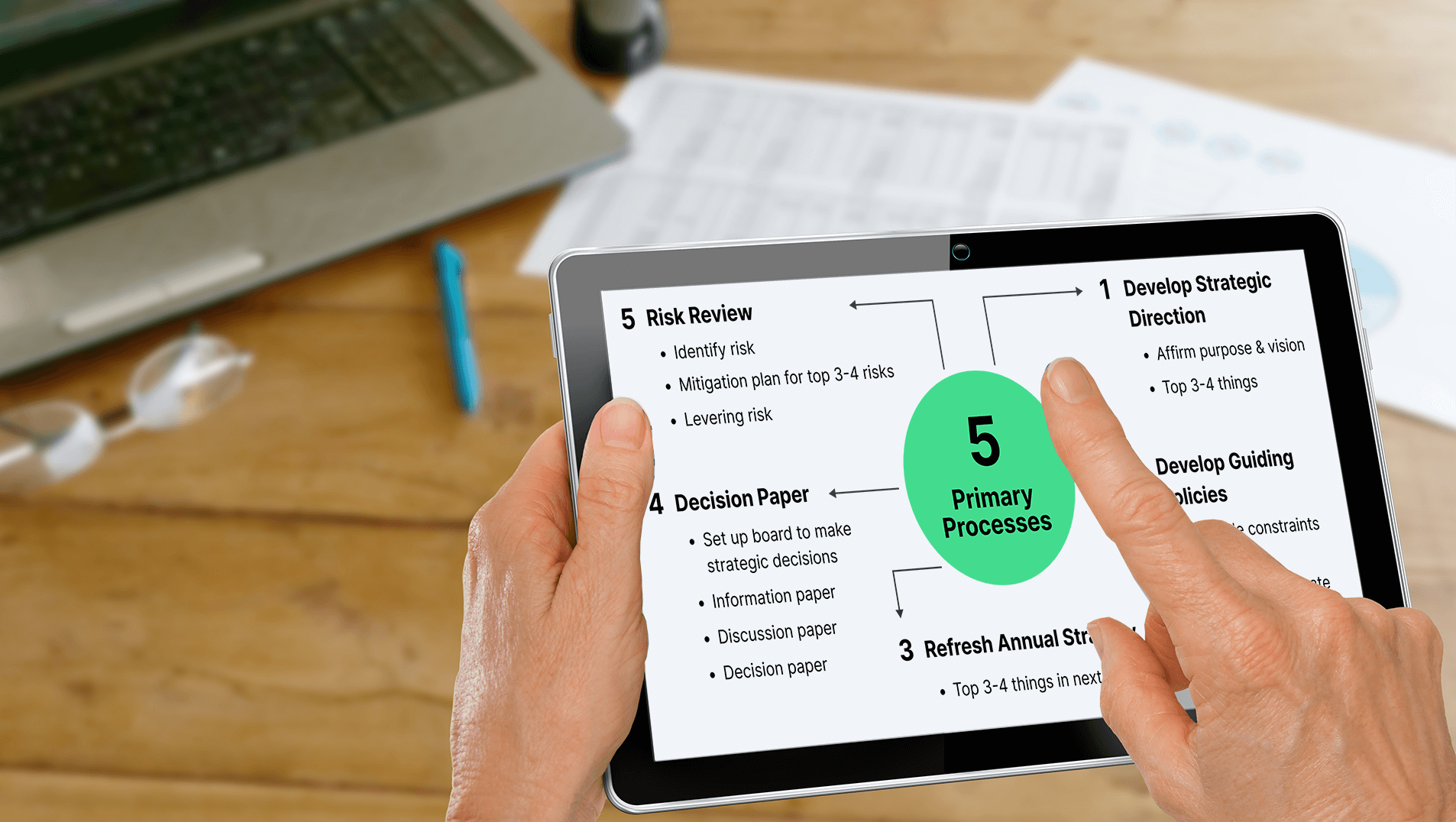Becoming a successful Board director requires a diverse set of skills. If you are interested in becoming the director of a Board, whether you currently work in the governance industry or not, you should be sure to expand your knowledge of the industry, as well as your social network. Apt situational awareness and foresight are important skills for a director, as well as charisma and social confidence. Additionally, you should aim to be flexible as you fulfil your new role and gain insight into your responsibilities vis à vis the particularities of your current company; however, you must also strive to possess the drive and direction necessary to steer the organisation in achieving its short- and long-term goals.
You may be wondering how to get started on the path to becoming a Board director. BoardPro spoke to two well-regarded professionals in the governance industry on the topic to learn from their wisdom.
Steven Bowman is the managing director of Conscious Governance, where he helps facilitate other industry professionals in their role as company leaders, providing support and consultancy services for NFP Boards, as well as individuals like CEOs and Directors. Often described as a Board Futurist, Paul Smith is interested in inspiring a new style of Board existence and management who founded the Future Directors Institute to challenge traditional conceptualisations of Board management.
Below, BoardPro shares seven traits you should be aware of in your journey to becoming a Board director, as well as Bowman and Smith’s insight on all things Board leadership.
As Smith says, “Future directors are and will be shaping the Board of the Future by creating the conditions for effective stewardship, good decision-making and ultimately leaving things in a better place than they found them.”
1. Knowledge
One of the key parts of becoming a Board director is building the knowledge base that allows you to do the job. These days, directors come from all sorts of backgrounds, so do not be discouraged if your background is not in traditional corporate roles.
Many companies are looking to diversify the collective knowledge base of their Board, and people with past careers outside the industry fill this gap. Plus, the more knowledge you acquire about running a Board, the better equipped you will be once you step into the leadership role. A good way to grow your understanding of what it takes to run a Board is to participate in one. Working your way up through the ranks in a variety of Board scenarios and positions will help you grow as an individual and prepare you with the key wisdom necessary to run a successful Board.
2. Insight
Not only do Board leaders and future directors need to possess the hands-on and theoretical knowledge required to run a Board, but they must also be intensely perceptive. Directors need to be able to grasp the heart of their Board’s situation, as well as any new opportunities that are presented. They should be aware of the boardroom dynamics at play and conscious of the reality both within the walls of the company and externally for its customers and community.
Being attuned to the lives and opinions will allow directors to better serve the other members of their Board. Leaders should possess insight into the current climate in their industry, as well as the profits and future of their company and its members. As Bowman says, “The gift of any director are the questions they’re willing to ask and be that no other director has thought of, and the purpose of a question is to unlock wisdom of others including yourself.”
3. Charisma
Board directors will inevitably meet and work with all sorts of people throughout their careers, and for this reason, it is important that future directors be charismatic. They should be able and willing to discuss varied – and sometimes fraught – topics with the others on their team, allowing for equal discussion time and differing points of view.
They should also be sure to engage in networking, and support fellow professionals across their industry, collaborating with other Boards on issues such as ESG awareness or Board diversity. Finally, they should be willing to maintain Board confidentiality in their personal and professional lives, no matter how charismatic they appear.
4. Foresight
“Most boards these days live in a reactive state because they don’t see things coming or aren’t prepared for the unknown. Great boards can anticipate, or better still, are creating the future. If you think about stewardship, it is steering the ship instead of just reacting to the winds and the waves around us,” shares Smith.
One of the most important traits of a future director is foresight, as it allows leaders to understand and plan for the future of their companies. Foresight helps leaders run scenarios and steer aptly, aware of their current standing and conscious of reaching their future goals. In a time of global upheaval such as ours, this trait is more in-demand than ever.
5. Drive
Along with foresight, directors must also have the drive to reach said company goals. They cannot only be lofty idealists, capable of envisioning a shining future yet unable to reach it. Drive relies on grit and determination to do the work necessary to achieve their plans. Future Board directors should be prepared to put in long hours working many roles on Boards, working to understand the governance community, form connections, and employ their growing knowledge as they gain experience and responsibility in the field.
6. Dedication
Dedication pairs perfectly with the drive that future directors possess in relation to their goals (and those of their Board) – it, too, helps leaders reach their goals. There will inevitably be tough times for a company, and a dedicated leader will not hesitate to put in the work to see the company through. Rather than baulk at the smallest challenge, a dedicated leader steps up, rolls up their sleeves, and sees to the hard tasks. This means running all the future scenarios, having difficult conversations, and asking tough questions.
7. Flexibility
Finally, as a leader, you can never truly know what the future holds for your company, and you should try to remain flexible in all your planning and hard work. Being adaptable is more important than ever, for as many of us learned with the pandemic, features of the industry that once seemed to be such immovable parts of workplace culture – including the physical office! – can shift overnight. Maintaining an open mind and being welcoming of feedback and constructive criticism will build your ability to lead effectively, letting your company adapt to its current situation and showing your employees that you bring valuable awareness to your position as a Board leader.
Share this
You May Also Like
These Related Stories

Governance trends in 2023

So you want to be a board director


